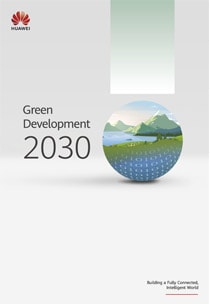Bringing unmanned operations to manufacturing and services to make up for labor shortages
Snapshot from the future: Collaborative robots
Collaborative robots are a type of industrial robot. They were initially designed to meet the customized and flexible manufacturing requirements of small- and medium-sized enterprises, and perfectly align with the development trends of the manufacturing industry. Collaborative robots are suitable for jobs that people don't want to do, such as highly repetitive work like sorting and packaging. Collaborative robots have several unique advantages:
Safer: Collaborative robots are compact and intelligent, and their sophisticated sensors enable them to stop in an instant.
Faster and more flexible deployment: Traditional industrial robots require professionals to plan and program their movement paths and actions, so they take a long time to deploy and are very costly. In contrast, collaborative robots feature user-friendly programming, such as programming by demonstration, natural language processing, and visual guidance. They can be placed in new positions at any time, and programing and commissioning can be completed rapidly, so they can start working very quickly.
Lower total cost of ownership (TCO) and shorter payback period: The price and annual maintenance cost of collaborative robots are significantly lower than those of traditional industrial robots. The average selling price of collaborative robots has halved over the past several years.
Snapshot from the future: Autonomous mobile robots
Autonomous mobile robots (AMRs) are a key enabler to help the manufacturing industry become flexible and intelligent. They will reshape production, warehousing, and logistics processes.
On production lines, AMRs make automated and unmanned logistics possible. This includes unmanned execution; unmanned interaction between AMRs and other equipment for material collection, feeding, and unloading; and unmanned material handling.
In warehouses, AMRs implement goods-to-person picking and execute intelligent picking, movement, and stock-in and stock-out procedures. In this model, the control system receives an order and assigns an AMR, which then lifts the shelf containing the required goods, moves it to the operator console, and unloads the goods to complete the order. After picking is completed, the robot moves the shelf back to its original position.
The distribution and picking of materials are not confined to factory buildings; AMR systems can be expanded to an entire campus. For example, when goods are unloaded, robots can automatically move them into their designated warehouses. Goods will be automatically logged into and out of warehouses, and the movement of goods between factories or warehouses will be automatically registered. These functions require the robots to support outdoor autonomous navigation, using features such as laser navigation, visual navigation, and satellite positioning.
Snapshot from the future: Industrial humanoid robots
Humanoid robots are designed to have human-like forms and functions, including anthropomorphic limbs, mobility skills, sensory perception, and learning and cognition capabilities. They will likely become the most valuable carriers of ""embodied AI"". Combined with rapidly developing general artificial intelligence and AI foundation models, humanoid robots will enable machines to interoperate and interact with their environments in a more intuitive and intelligent manner, and perform a wide variety of complex tasks just like humans.
Industrial humanoid robots can flexibly carry out different operations, move agilely, and independently learn and make decisions. Unlike traditional industrial robots, humanoid robots can complete specific tasks without requiring advanced planning. They can autonomously perceive, understand, learn, and make decisions when completing production line tasks and are capable of powerful autonomous decision making, operations, and interactions. Humanoid robots can currently work in a number of positions in factories, including material handling, quality inspection, labeling, assembly, and high-risk operations.
Humanoid robots can also work around the clock without rest, meaning they can significantly improve both production output and product quality, solve the long-standing challenges caused by labor shortages, and usher in a new era of intelligent manufacturing.
Snapshot from the future: AI-powered adaptive teaching
Conventional education uses the same model to deliver the same course content to different students. AI can transform this industry by analyzing learning models and individual differences between students. This improves the quality of education and makes it possible to teach students in accordance with their aptitudes. For example, as technologies such as big data, cloud computing, Internet of Things (IoT), virtual reality (VR), and augmented reality (AR) evolve, AI-assisted education will break down learning and teaching behavior in a more granular way and build more robust and precise education models. VR and AR technologies can be used to present materials in a more engaging manner and deliver interactions that suit students' personal preferences, helping students better master their course content.
AI liberates teachers from the repetitive and tedious grading of exam papers and administration, allowing them to focus on the creative work of educational research and one-on-one communication with students. Supported by huge amounts of data generated through educational activities, AI will help teachers better understand the effectiveness of their teaching, and provide key recommendations on the most effective teaching methods and the best way to organize course content.
In schools, AI can be deployed anywhere, and can simulate the best teachers of any subject, bringing the highest-quality education and content to the most remote schools. AI-based education offers multi-channel engagement with students, including video and audio, which can help make up for the scarcity of teaching resources in some areas (for example, in understaffed schools, a teacher may have to teach four or even five different subjects). In this way, AI promotes educational equity.
















































